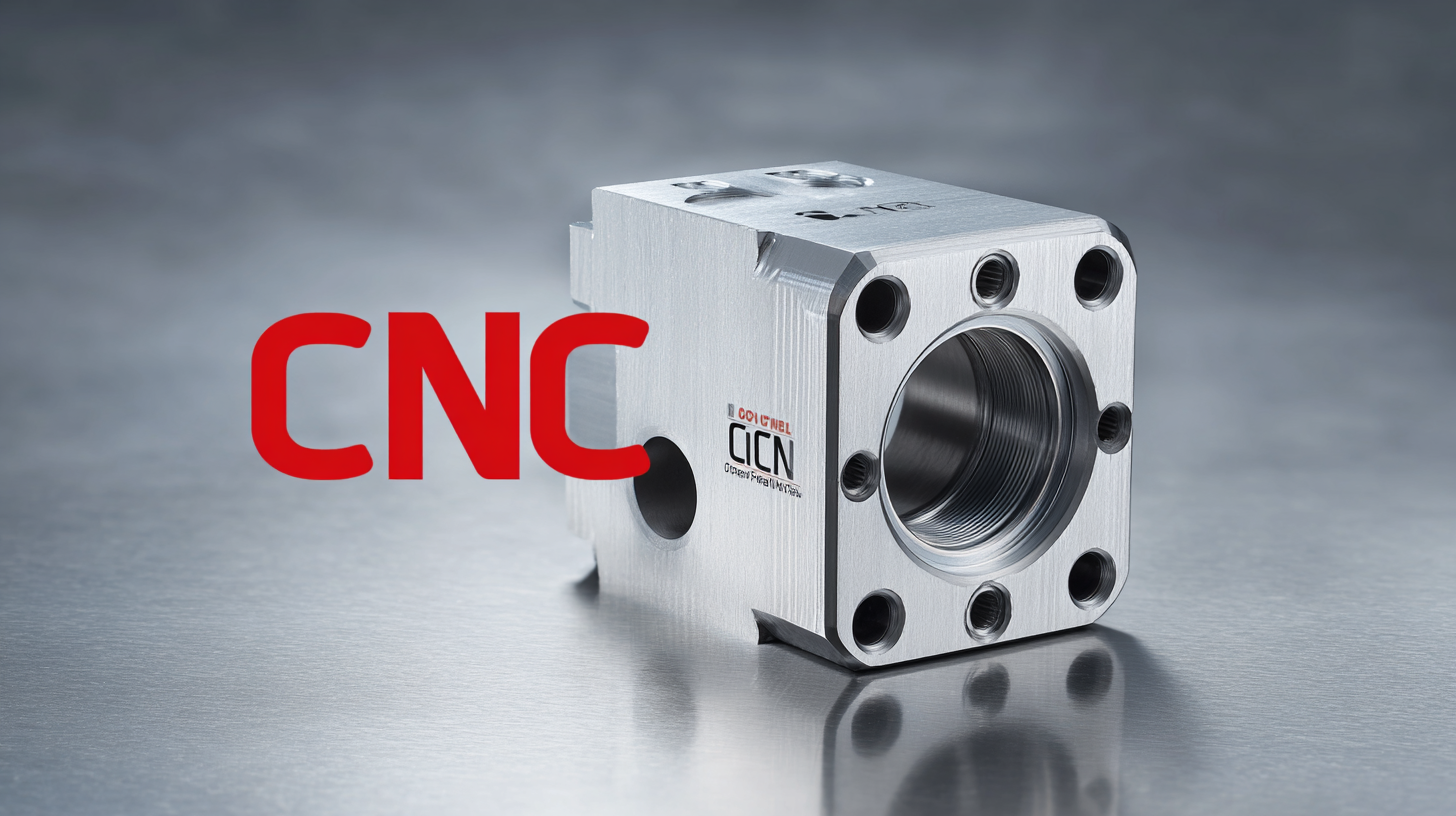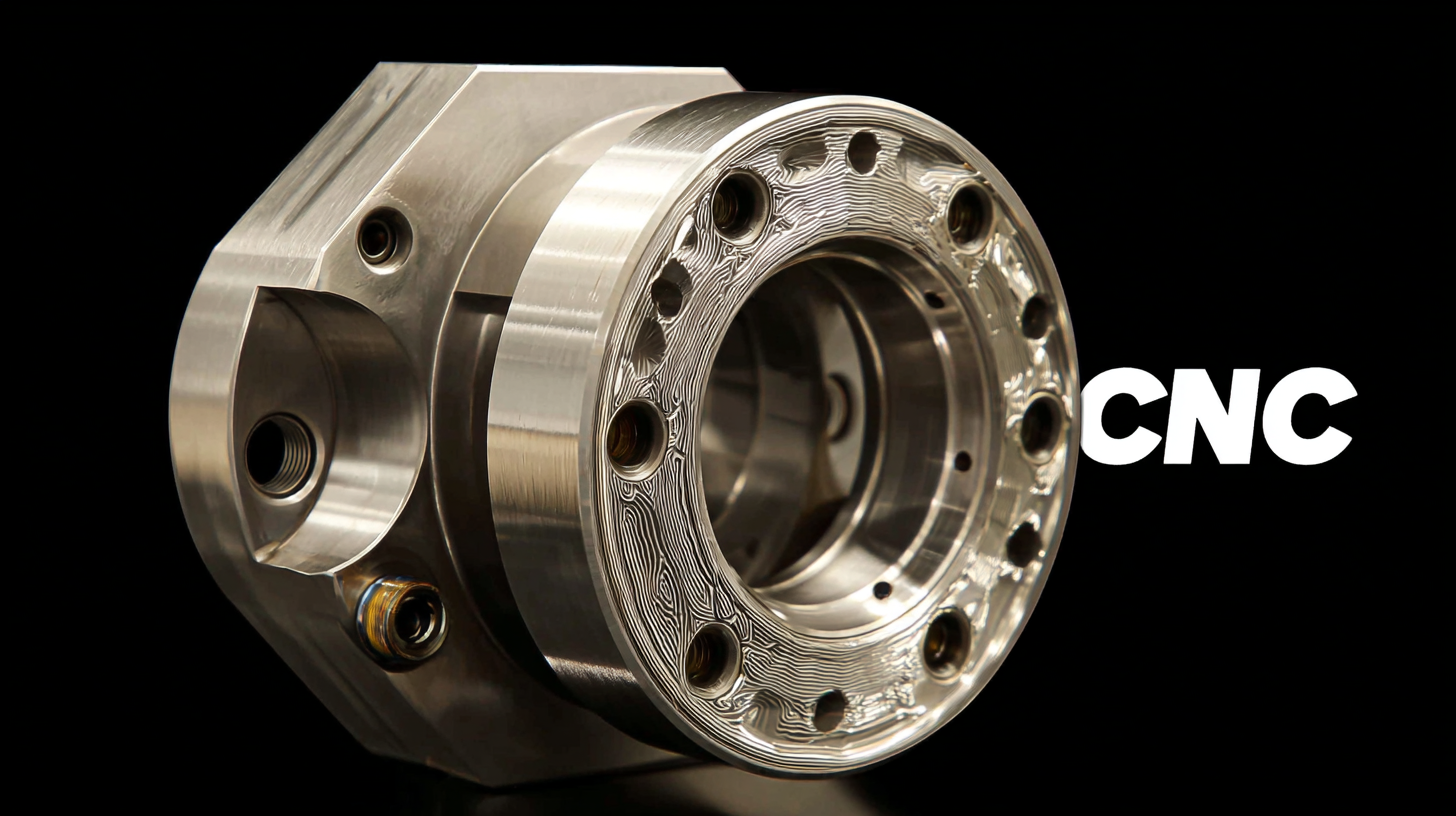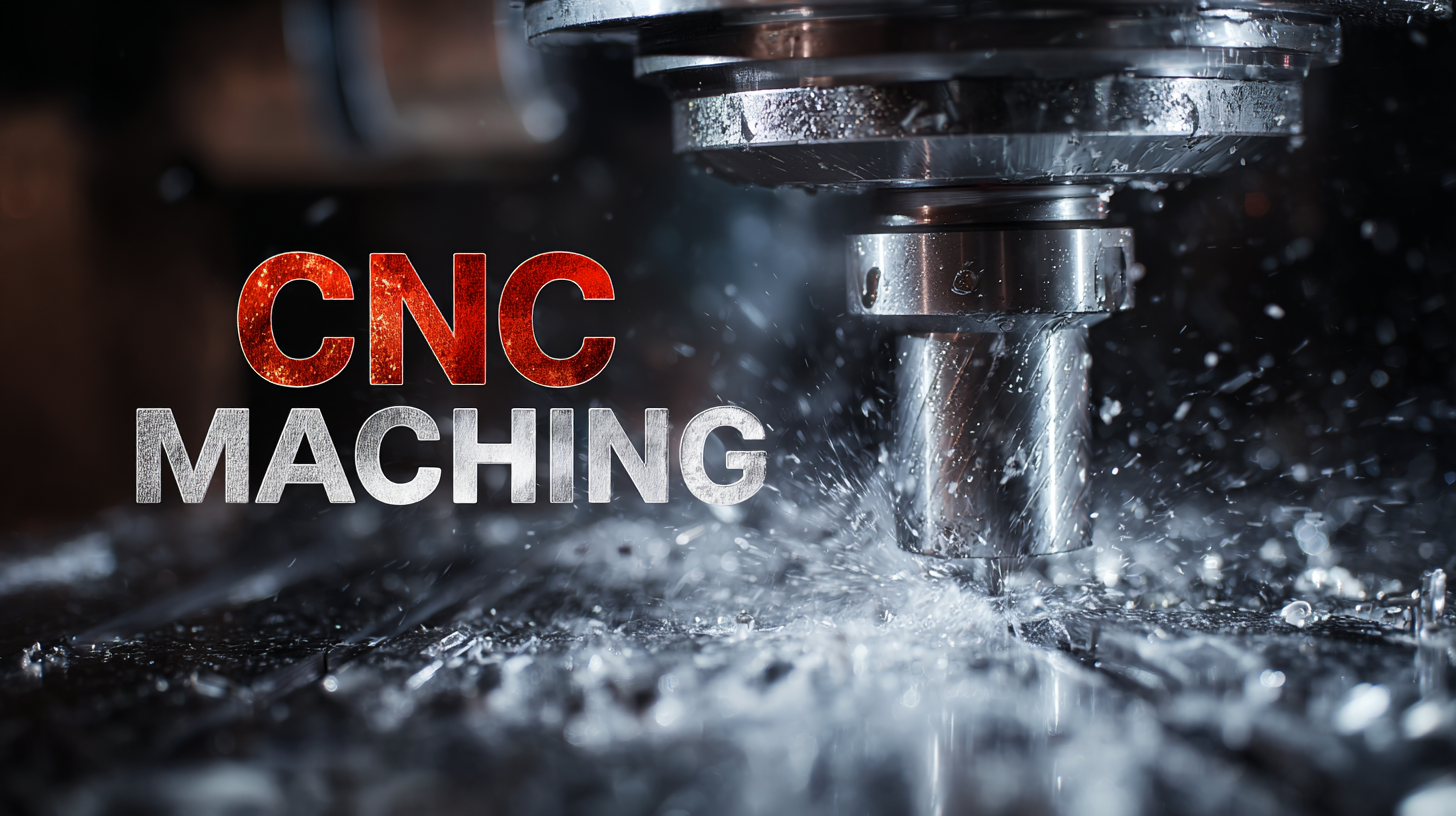- English
- Español
- Português
- русский
- Français
- 日本語
- Deutsch
- tiếng Việt
- Italiano
- Nederlands
- ภาษาไทย
- Polski
- 한국어
- Svenska
- magyar
- Malay
- বাংলা ভাষার
- Dansk
- Suomi
- हिन्दी
- Pilipino
- Türkçe
- Gaeilge
- العربية
- Indonesia
- Norsk
- تمل
- český
- ελληνικά
- український
- Javanese
- فارسی
- தமிழ்
- తెలుగు
- नेपाली
- Burmese
- български
- ລາວ
- Latine
- Қазақша
- Euskal
- Azərbaycan
- Slovenský jazyk
- Македонски
- Lietuvos
- Eesti Keel
- Română
- Slovenski
- मराठी
- Srpski језик

How to Source the Best CNC Machining Parts for Your Global Projects
In today's competitive global market, sourcing high-quality CNC Machining Parts has become essential for manufacturers aiming to streamline production processes while minimizing costs. According to a report by Research and Markets, the global CNC machining market is expected to reach $100.96 billion by 2025, reflecting a compound annual growth rate (CAGR) of 6.0% from 2018 to 2025. This growth underscores the increasing reliance on precision-engineered components across various industries, including aerospace, automotive, and medical technology. As businesses expand their global footprint, understanding the nuances of after-sales service advantages and maintenance costs becomes critical in maintaining operational efficiency. This blog will explore effective strategies to source the best CNC Machining Parts for your projects, ensuring both cost-effectiveness and reliability in production.

Understanding the Importance of Quality in CNC Machining Parts for Global Success
In the competitive landscape of global manufacturing, the importance of sourcing high-quality CNC machining parts cannot be overstated. As industries strive to innovate and adapt to the evolving demands of clients, the quality of the parts utilized in production directly influences overall project success. The surge in the CNC market, projected to reach approximately $195.6 billion by 2032, underscores the growing acknowledgment of precision and reliability in manufacturing processes. Manufacturers must prioritize targeted investments in their digital and data foundations, ensuring that the CNC parts they source meet stringent quality standards.

Moreover, the alignment of quality CNC machining with the principles of Industry 4.0 is essential. Companies are increasingly relying on advanced technologies, such as AI and machine learning, to enhance supply chain management and improve the precision of their manufacturing efforts. Integrating these technological advancements can lead to improved adaptability and speed, helping businesses maintain a competitive edge in both local and global markets. As manufacturers navigate the complexities of today's economy, the commitment to sourcing top-notch CNC parts will be a key determinant of success across global projects.
Key Factors to Consider When Sourcing CNC Machining Components from China
When sourcing CNC machining components from China, it's essential to consider several key factors to ensure you select the best suppliers. According to a report by Grand View Research, the global CNC machining market was valued at approximately $56.1 billion in 2021 and is anticipated to grow at a CAGR of 6.7% from 2022 to 2030. This growth underscores the importance of establishing a reliable supply chain, especially if you aim to leverage China's manufacturing capabilities.
One critical factor is the supplier's production capacity and quality assurance measures. Research indicates that approximately 60% of CNC machining companies in China have adopted advanced quality management systems, such as ISO 9001 certification, which can significantly reduce the risks associated with production flaws. Furthermore, aligning with suppliers who use modern CNC machines and technologies ensures that you receive precise components that meet international quality standards.
Additionally, understanding the logistics and communication capabilities of potential suppliers is vital. Deloitte’s 2021 Global Supply Chain Survey revealed that 79% of organizations view effective supplier collaboration as a critical driver of supply chain performance. Engaging with suppliers who prioritize transparent communication and have robust logistical frameworks can lead to smoother operations and timely delivery of CNC parts.

Navigating Supplier Relationships: Building Trust and Communication for Quality Assurance
Building strong relationships with suppliers is crucial for sourcing the best CNC machining parts for global projects. Trust and communication play a significant role in ensuring quality assurance. Start by establishing clear expectations from the outset. Share your project specifications, timelines, and quality standards with potential suppliers to foster an open dialogue.
Tip: Schedule regular check-ins with your supplier to discuss progress and address any concerns. This proactive approach helps prevent misunderstandings and keeps both parties aligned on project goals.
Additionally, consider creating a feedback loop where you can share your experience and insights with your suppliers. This not only builds trust but also encourages them to invest in improving their services and products.
Tip: Develop a system for evaluating supplier performance based on quality, delivery, and responsiveness. This will help you identify reliable partners and nurture long-term relationships that contribute to successful project outcomes.
Evaluating CNC Machining Suppliers: Tips for Ensuring Consistent Quality and Competitiveness
When evaluating CNC machining suppliers for your global projects, ensuring consistent quality and competitiveness is crucial. One effective approach is to create a comprehensive checklist that focuses on the quality control processes of potential suppliers. This should include aspects like their certifications, such as ISO 9001, which indicate a commitment to quality management systems. Additionally, assessing their manufacturing capabilities and technologies can provide insights into their ability to meet your specific project requirements.
Another important tip is to request samples before making any long-term commitments. By evaluating sample parts, you can directly assess the supplier’s craftsmanship and precision. Ensure that the samples are tested for durability and compliance with your specifications. This proactive approach not only safeguards your project's integrity but also fosters a sense of partnership with your supplier, as you are both aligned on quality expectations.
Lastly, establishing clear communication and feedback channels is vital. Frequent, open dialogue with your supplier can help address any potential issues early on and maintain a high standard of quality throughout the manufacturing process. Building trust and understanding will ultimately lead to a more fruitful collaboration, resulting in superior CNC machining parts for your global endeavors.
How to Source the Best CNC Machining Parts for Your Global Projects
| Supplier Category | Location | Material Capability | Production Capacity | Lead Time | Quality Certifications |
|---|---|---|---|---|---|
| Precision Machining | Germany | Aluminum, Steel | 5000 units/month | 3 weeks | ISO 9001, AS9100 |
| CNC Turning | USA | Brass, Titanium | 3000 units/month | 2 weeks | ISO 13485, IATF 16949 |
| Sheet Metal Fabrication | China | Stainless Steel, Carbon Steel | 8000 units/month | 4 weeks | ISO 9001 |
| Prototyping Services | Canada | Plastic, Aluminum | 1200 units/month | 1 week | ISO 9001 |
The Role of Technology in Enhancing CNC Machining Quality and Efficiency for Global Projects
In today's fast-paced manufacturing environment, technology plays a crucial role in enhancing the quality and efficiency of CNC machining for global projects. One of the standout advancements is the integration of artificial intelligence (AI) into CNC processes. AI-driven CNC machining not only automates repetitive tasks but also optimizes production schedules, significantly reducing lead times and costs. By harnessing this technology, shop owners can increase their operational efficiency, driving higher output and consistency in product quality.
Another transformative tool in the CNC landscape is the Digital Twin technology. This advanced modeling technique allows manufacturers to create virtual replicas of their machinery and products, enabling real-time simulation and optimization before actual production begins. By utilizing Digital Twin technology, companies can identify potential issues early in the design phase, ensuring a seamless manufacturing process and enhanced product quality.
Tips for leveraging technology in CNC machining include regularly investing in training for your workforce to keep up with technological advancements, considering automation solutions to reduce human error, and using data analytics to continually assess and improve production efficiency. Embracing these strategies can help manufacturers stay competitive and meet the evolving demands of global markets.
